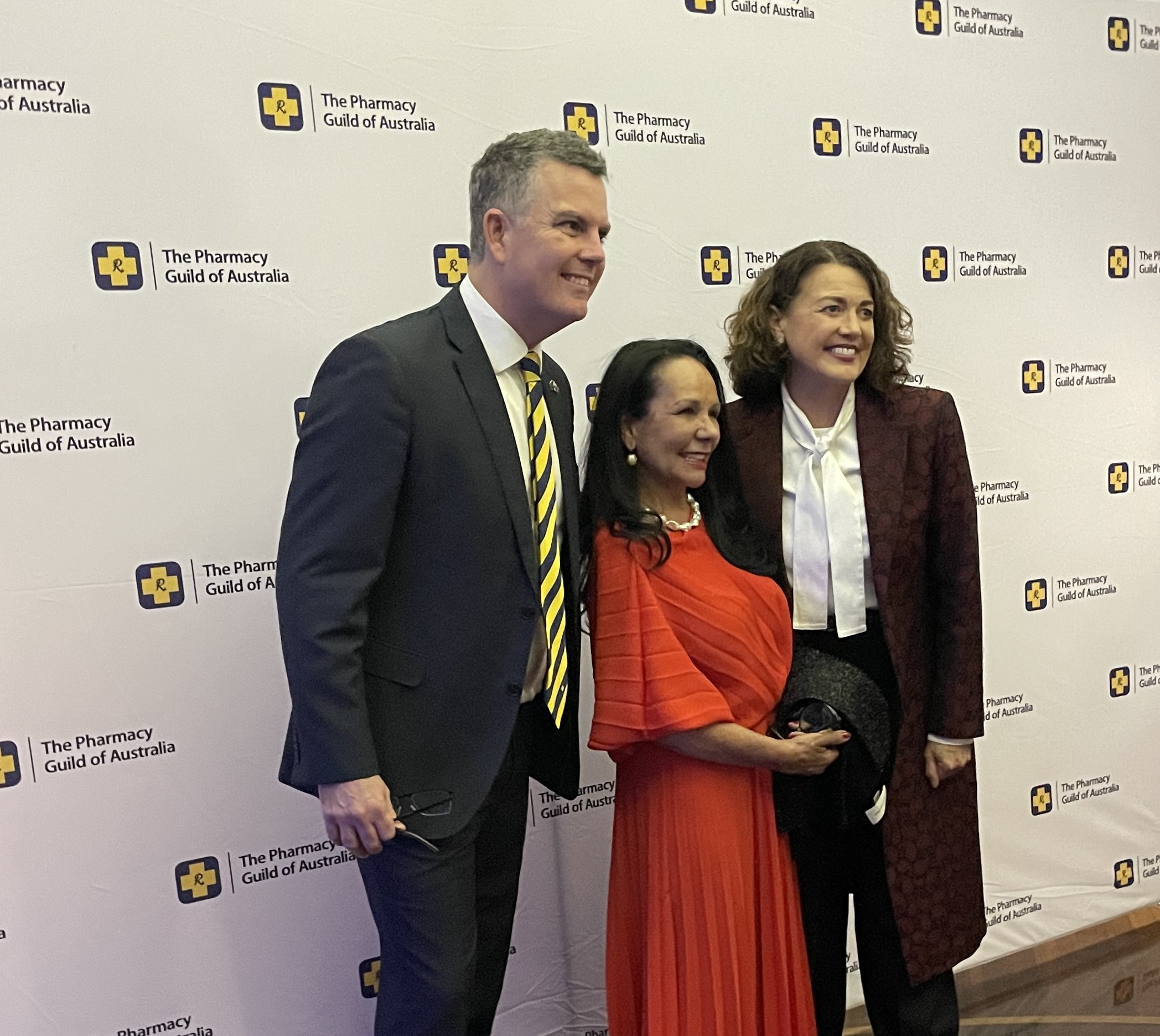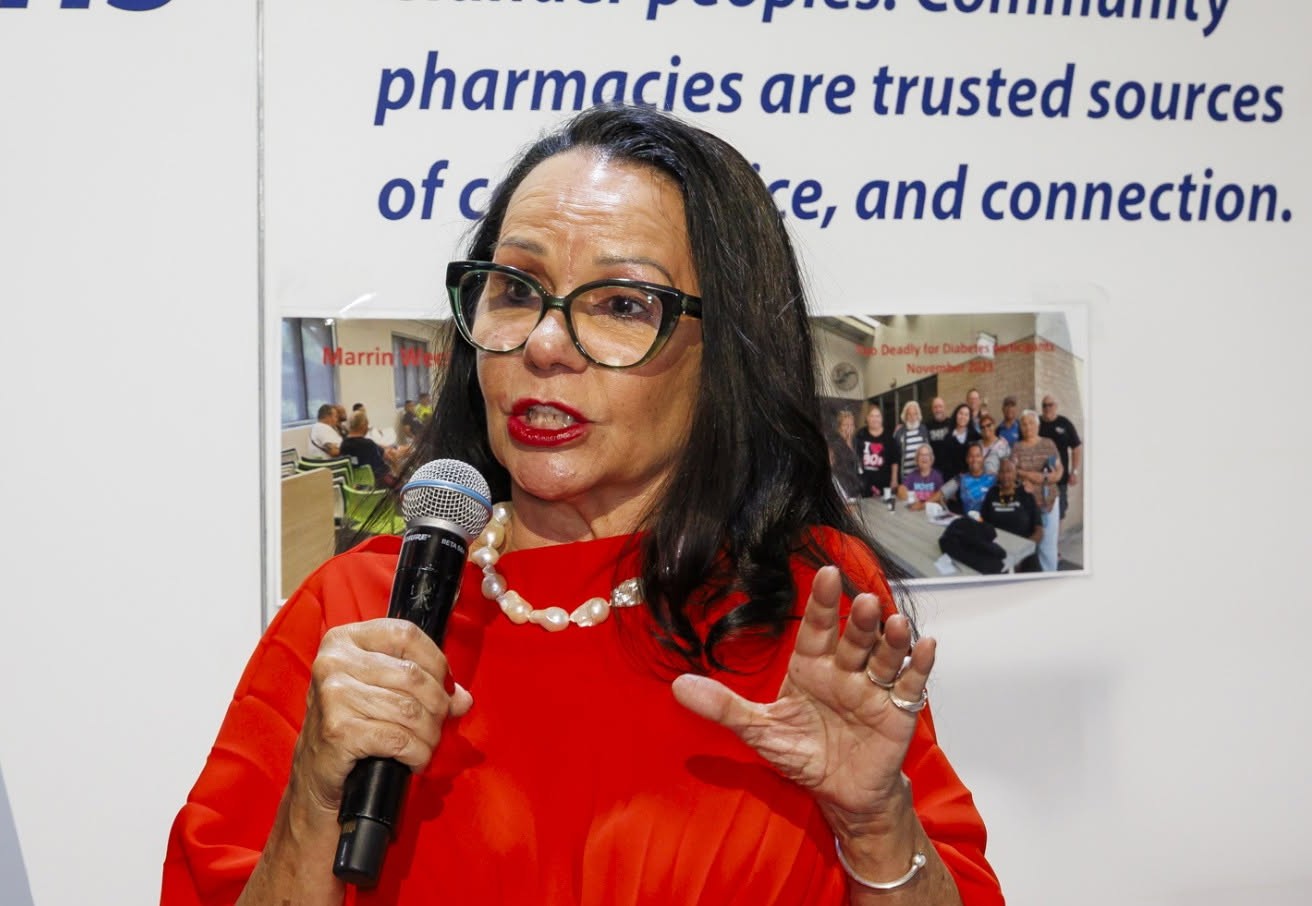The announcement was made before more than 400 political and industry stakeholders at Parliament House in Canberra during the PGA's annual parliamentary dinner.
The First Nations Pharmacy Network is a landmark initiative designed to strengthen culturally safe healthcare for Aboriginal and Torres Strait Islander peoples in Australia.
The Hon Linda Burney is a proud Wiradjuri woman who served in state and federal politics in Australia for more than two decades.
It marks a significant milestone in PGA's Community Pharmacy Indigenous Health Strategy, which aims to embed cultural safety, amplify community voices, and improve health outcomes for First Nations communities across Australia.
We don’t have to choose between practical and symbolic reconciliation — we can and must do both. Community-led care is not only effective, but also an act of respect.
The Hon Linda Burney
“We know there can be no Closing the Gap without collaboration,” PGA's National President Professor Trent Twomey said.
"With the expert guidance of Linda Burney as chair, we are committed to ensuring culturally safe, accessible, and community-led care remains at the heart of our sector," he said.

Cultural safety
The collaboration with Ms Burney comes at a pivotal time, as the PGA continues to prepare for the future expansion of PBS prescribing rights and pharmacist scope of practice — a move which will further enhance access to primary care, particularly in rural and remote communities.
“I am honoured to chair the First Nations Pharmacy Network,” the Hon Linda Burney said.
“This initiative reflects the power of genuine partnership and the importance of embedding cultural safety in every part of our health system," she said.
By respecting and elevating the voices and wisdom of Aboriginal and Torres Strait Islander peoples, we strengthen self-determination and uphold the principles at the heart of Closing the Gap.
The Hon Linda Burney
"We don’t have to choose between practical and symbolic reconciliation — we can and must do both. Community-led care is not only effective, but also an act of respect.”
First point of contact
Ms Burney also said community pharmacies are often the first point of contact in the health system — places where trust is built and medicines are explained.
"In community pharmacy, agency and autonomy are returned to patients and communities: individuals are empowered to make informed choices about their health, ask questions freely, and participate actively in their care," she said.
"This approach honours cultural knowledge and community leadership, ensuring care is co-created and led by those it serves, with allies walking alongside in genuine partnership, with pharmacist owned community pharmacies.
"By respecting and elevating the voices and wisdom of Aboriginal and Torres Strait Islander peoples, we strengthen self-determination and uphold the principles at the heart of Closing the Gap," Ms Burney said.
Closing the Gap
Prof Twomey added pharmacists were doing great things to invest in Closing the Gap.
“But we know there’s more work to do," he said.
"This is about walking alongside First Nations communities, listening, and acting together.”
The First Nations Pharmacy Network will provide a platform for lived-experience voices, cultural leadership, and practical solutions to ensure that every community pharmacy is a place of trust, healing, and cultural connection that places patients at the centre of care, strengthens access to medicines, and empowers pharmacists to practise to their full professional capability.










